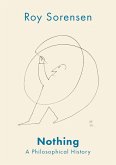This is the first of two volumes on belief and counterfactuals. It provides an introduction to ranking theory, which is a powerful formal theory with a broad range of applications in different areas of analytic philosophy. Drawing on formal logic, ranking theory can account for degrees of belief, which can change with the introduction of new information. In Belief and Counterfactuals, Franz Huber applies ranking theory and belief revision to metaphysics and epistemology. Though based on his technical writings, the volume is intended to be as accessible as possible, in order to fully present the utility of ranking theory to a wide range of philosophical issues. The volume contains several novel arguments, accounts, and applications--including the consistency argument for ranking theory, the conditional theory of conditional belief, as well as solutions to the problems of conceptual belief change, logical learning, and learning conditionals. Huber also presents a defense of the instrumentalist understanding of normativity, or rationality, and an argument for the thesis that there are only hypothetical imperatives and no categorical imperatives. His distinctive use of means-end philosophy as a unifying methodological approach establishes a treatment of philosophy as a normative discipline, and of philosophical problems as entangled with one another. This position also explains the importance of logic to philosophy, without devolving into a separate technical theory.
Dieser Download kann aus rechtlichen Gründen nur mit Rechnungsadresse in A, B, BG, CY, CZ, D, DK, EW, E, FIN, F, GR, HR, H, IRL, I, LT, L, LR, M, NL, PL, P, R, S, SLO, SK ausgeliefert werden.









